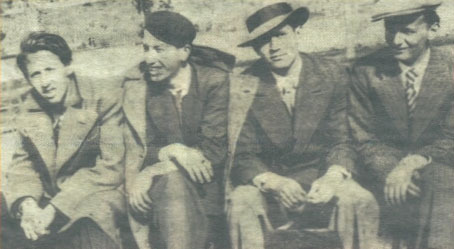Reading Persepolis for the first time was quite a shock for me. I was reading a graphic memoir that talked about what I have been through for the past year; not as a child but as an adolescent. It was the spring of 2013 and our lives were normal other than basic restrictions of the oppressive Islamist government. However, after deciding to attend a peaceful protest in Gezi Park, my whole life changed. Before I got there the protest started facing police brutality and was not just peaceful anymore; the police who used blank cartridge guns and tear gas canons were attacking people brutally. As a response, people read books to the police, they even shared their food with them for the sake of keeping the protest peaceful which was of course not possible once it was spread to the whole country.

The following week was finals week in my school. Every morning we would take our exams and join the protest as a community even though things got more and more violent everyday. The school environment was just like the first chapter of Persepolis, no one understood what was going on, no one knew the scale of it and no one could get reliable information as social media was the only source.

I wasn’t of course, the only one attending the protests in our house. My mom went out to houses where the battle was most intense and served as a medic to help out the wounded. Her boyfriend, on the other hand, learned where a doctor was needed and drove her around the city. I would watch them come home exhausted, and hear their horrifying stories.

I was 17 at the time, not being a child like Marji; my mom would not stop me from going to the protests but after people started dying she became more precautious and limited my time in the protests. Nonetheless, like Marji and many more, that did not stop me from attending the protests. I just had to do it secretly now. Plus, my mom was attending too; her life to me was as equal as my life to her. At least that was what I thought at the time.

After the protests everyone was really hopeful that things would change, however, things only got worse and worse. Through the use of excellent PR, the protest gained a terrible reputation within the country. Suddenly people were divided into two, the ones who supported the protests (people who wanted the government down) and the ones who were against it (pro-government). People who supported the government were mostly Radical Islamists as the ruling party is a Radical Islamist party. Looking just like Satrapi’s drawings, Radical Islamists also reported on people who attended the protests which was also happening on 1980’s Iran as told by Satrapi.

Radical Islamists fighting against protesters siding with the police
Reading it once more, after moving to Canada was even more personal for me. I could relate the experience and the emotions of the last chapter as well. Not being wanted by the power in your country, thus, living under stress and hate all the time is an unbearable experience. Knowing things were not going to get better in the short run, my parents were determined to sent me abroad so that I could spend the rest of my youth and the early academic years of my life without being under oppression.

“The Woman in Red” one of the symbols of the resistance
The similarities of present day Turkey and 1980’s Iran got me thinking on how ideologies spread. The first signs of the Radical Islamist Movement in Turkey were seen around the mid nineties, approximately 15 years after the Iranian revolution, when Radical Islamists burned down a hotel (Madımak Massacre) full of intellectual thinkers many of who did not survive. It would take a great amount of time for an ideology to gain so many followers. Hence, if we take that into consideration, Radical Islam might have started to become popular in Turkey, just a few years after the Iranian Revolution, as Iranian Revolution might have encouraged the pre-existing Radical Islamists to start propaganda. It is almost impossible to make 100% certain statements in such topics, nevertheless, it is safe to say that, one way or another, the Radical Islamists in Turkey were effected by The Iranian Islamic Revolution.

A caricature representing the Madımak Massacre
Barış Uzel








